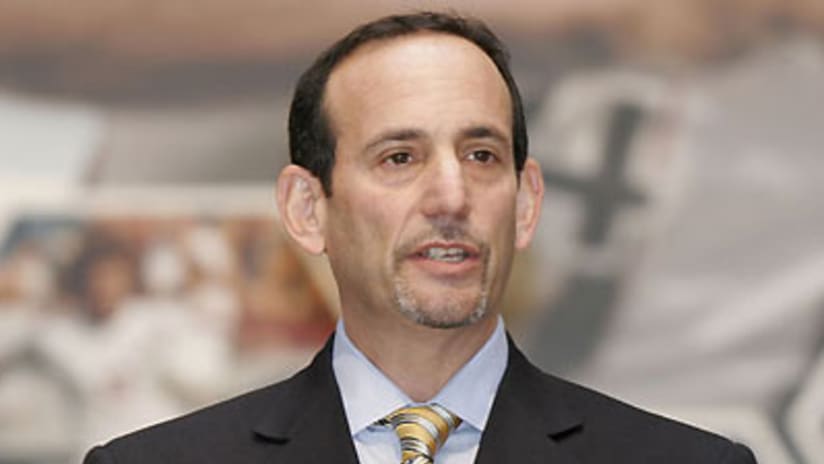the investor-operator of the New England Revolution -- in 1999. Silicon Valley Sports & Entertainment, the owners of the NHL's San Jose Sharks, then became the club's operator in 2001, with AEG joining the mix a year later.
The arrangement through which AEG ran the club was always meant to be temporary, and for the past three years, the company has looked for a new investor to buy the team. Tied in to the search for a new investor has been the search for a place to build a soccer-specific stadium. The club's lease at Spartan Stadium has been deemed by AEG to be unsatisfactory, particularly in the amount of concessions and parking revenue given to the Earthquakes. Leiweke has been quoted as saying AEG has lost $20 million on the Quakes.
Negotiations with the City of San Jose and potential investors -- including SVS&E -- had heated up in the past month, after Garber announced on Nov. 15 that MLS had given AEG permission to move the club if a deal was not struck within 30 days. A deal crafted behind closed doors last week reportedly fell apart abruptly Monday night.
"Though we all worked hard and thought a deal can get done, a deal for a stadium and local ownership couldn't get finalized in time for us to prepare for the 2006 season," Garber said. "The city worked hard to try to keep the team in the market for '06. We ran out of time and had to make a decision that was in the best interest overall of Major League Soccer. But that doesn't take away their interest in having an MLS team there. They've been working hard with us over the last 24 hours to finalize this Letter of Intent.
"We believe that professional soccer can be very successful and will return to the Bay Area. This will be a major priority of mine and the rest of the league office over the next year."
Garber said Thursday the league has had productive meetings with Oakland A's owner Lewis Wolff about becoming the investor-operator of the new Earthquakes and that discussions with Wolff and others will continue after Jan. 1, 2006. The commissioner noted that with some extra time to sort out the Bay Area's MLS future, a deal that will benefit both the city and the league can be ironed out. It will also help to put an end to the revolving door ownership of the team.
"We need to start anew," Garber said. "It's just not the way to properly manage a very high-potential market ... What we need to do is take a deep breath. We need to rally behind the scenes. We need to get this done right with a local owner in a long-term facility. If we can do that -- and we're confident we can -- then we layer over the fact that we believe so much in the market."
Garber also believes that the public can get behind stadium financing when a plan is ultimately put to the voters.
"We know that any expenditure will require public support ... We had public referendums in Dallas and public referendums in Denver, and it's going to be our view that this facility -- with the other benefits that it's going to provide to the market -- will be something that the public could support."
The Letter of Intent the league and City of San Jose signed provides a framework for an assortment of elements that will allow the league to put an expansion team back in the city as soon as possible. Those elements include a stadium financing plan; the Letter of Intent will be voted on at a future San Jose City Council meeting.
In anticipation of the return of the Quakes, the league is retaining the club's name, colors and competition records to be restored when San Jose is granted an expansion team. An identical situation existed when the NFL's Cleveland Browns moved to Baltimore in 1996; the Browns returned to the league as an expansion team in 1999.
Jason Halpin is a contributor to MLSnet.com. This story was not subject to the approval of Major League Soccer or its clubs.










